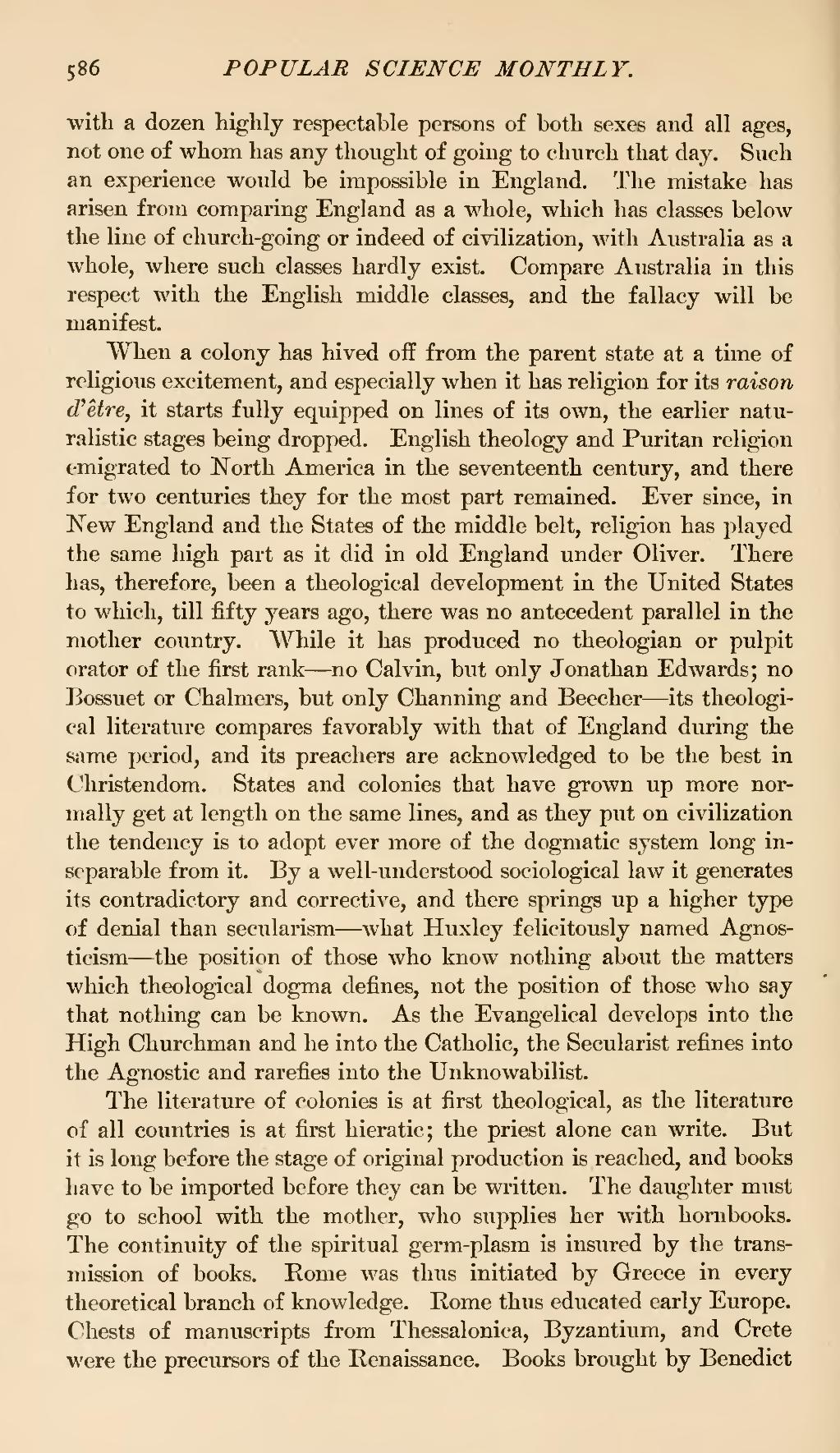with a dozen highly respectable persons of both sexes and all ages, not one of whom has any thought of going to church that day. Such an experience would be impossible in England. The mistake has arisen from comparing England as a whole, which has classes below the line of church-going or indeed of civilization, with Australia as a whole, where such classes hardly exist. Compare Australia in this respect with the English middle classes, and the fallacy will be manifest.
When a colony has hived off from the parent state at a time of religious excitement, and especially when it has religion for its raison d'être, it starts fully equipped on lines of its own, the earlier naturalistic stages being dropped. English theology and Puritan religion emigrated to North America in the seventeenth century, and there for two centuries they for the most part remained. Ever since, in New England and the States of the middle belt, religion has played the same high part as it did in old England under Oliver. There has, therefore, been a theological development in the United States to which, till fifty years ago, there was no antecedent parallel in the mother country. While it has produced no theologian or pulpit orator of the first rank—no Calvin, but only Jonathan Edwards; no Bossuet or Chalmers, but only Channing and Beecher—its theological literature compares favorably with that of England during the same period, and its preachers are acknowledged to be the best in Christendom. States and colonies that have grown up more normally get at length on the same lines, and as they put on civilization the tendency is to adopt ever more of the dogmatic system long inseparable from it. By a well-understood sociological law it generates its contradictory and corrective, and there springs up a higher type of denial than secularism—what Huxley felicitously named Agnosticism—the position of those who know nothing about the matters which theological dogma defines, not the position of those who say that nothing can be known. As the Evangelical develops into the High Churchman and he into the Catholic, the Secularist refines into the Agnostic and rarefies into the Unknowabilist.
The literature of colonies is at first theological, as the literature of all countries is at first hieratic; the priest alone can write. But it is long before the stage of original production is reached, and books have to be imported before they can be written. The daughter must go to school with the mother, who supplies her with hornbooks. The continuity of the spiritual germ-plasm is insured by the transmission of books. Rome was thus initiated by Greece in every theoretical branch of knowledge. Rome thus educated early Europe. Chests of manuscripts from Thessalonica, Byzantium, and Crete were the precursors of the Renaissance. Books brought by Benedict
